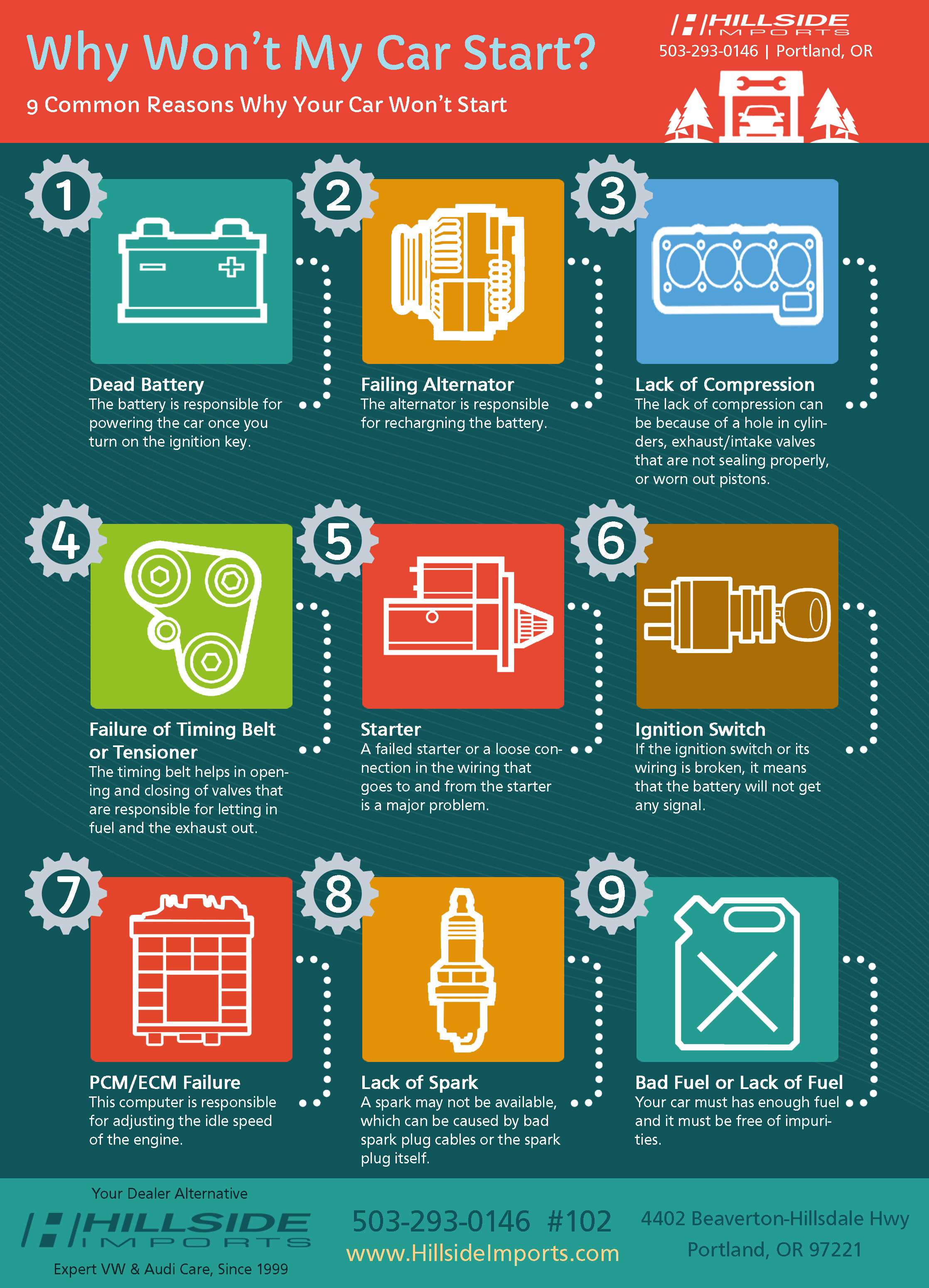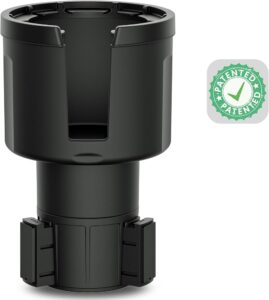As an Amazon Associate, I earn from qualifying purchases
We’ve all been there – turning the key, but the car won’t start. It’s frustrating and often happens at the worst times.
Understanding why this happens can save you stress and money. Your car’s refusal to start can be due to several reasons. Sometimes, it’s a simple fix; other times, it might need professional help. Knowing the common causes can help you diagnose the problem faster.
Whether it’s a dead battery, a faulty starter, or something else, identifying the issue is the first step. This guide will explore various reasons why your car might not start and offer insights on what you can do. Let’s dive into the most common issues that could be keeping your car from running.
Common Starting Issues
Many drivers face the frustration of a car that won’t start. Understanding the common starting issues can help diagnose the problem quickly. Let’s explore some frequent causes.
Battery Problems
The battery is often the culprit behind starting troubles. A dead or weak battery cannot supply the necessary power to start the engine. Corroded battery terminals can also prevent the flow of electricity. Check for any buildup around the terminals.
Another issue is a loose battery connection. Ensure the battery cables are tight and secure. If the battery is old, it might need replacement. Usually, car batteries last about three to five years.
Ignition Switch Failure
The ignition switch is crucial for starting the car. If it fails, the car won’t start. Signs of a failing ignition switch include flickering dashboard lights and the car stalling while driving. Sometimes, the key might not turn at all.
Wear and tear can cause the ignition switch to break down. Regular use over time can lead to this issue. If you suspect the ignition switch, consult a mechanic for inspection and replacement.
Battery Related Problems
Experiencing car troubles can be frustrating, especially when your car won’t start. One of the most common reasons is battery-related issues. A car battery plays a crucial role in starting the engine and powering electrical components. Let’s dive into some of the most common battery problems that could be preventing your car from starting.
Dead Battery
A dead battery is a frequent cause of starting issues. Over time, batteries lose their ability to hold a charge. Here are some signs that your battery might be dead:
- Dashboard lights are dim or not turning on.
- The engine cranks slowly or not at all.
- Clicking sounds are heard when turning the key.
To confirm if the battery is dead, use a multimeter. A healthy battery should read around 12.6 volts or higher. If the reading is below 12 volts, it’s time for a replacement.
Corroded Battery Terminals
Corrosion on battery terminals can interrupt the flow of electricity. This can prevent your car from starting. Signs of corroded terminals include:
- White, ashy substance on the terminals.
- Difficulty starting the car.
- Intermittent electrical issues.
To clean the terminals:
- Turn off the engine and disconnect the battery.
- Mix baking soda with water to create a paste.
- Apply the paste to the terminals and scrub with a brush.
- Rinse with water and dry thoroughly.
- Reconnect the battery and start the car.
Regular maintenance of battery terminals can prevent future corrosion. Ensure the battery is tightly secured to avoid vibrations that can cause damage.
Fuel System Failures
Fuel system failures are a common reason why a car won’t start. The fuel system includes several components that work together to deliver fuel to the engine. If any part of this system fails, your car may have starting problems. Understanding these issues can help you troubleshoot and fix the problem quickly.
Empty Gas Tank
An empty gas tank is an obvious reason for a car not starting. Sometimes, the fuel gauge can be faulty and show incorrect readings. Always check the gas level before assuming a more serious problem. Keeping a small reserve of fuel in your tank can prevent this issue. It’s a simple step but often overlooked.
Clogged Fuel Filter
A clogged fuel filter can also prevent your car from starting. The fuel filter’s job is to keep debris and dirt out of the fuel system. Over time, these particles can clog the filter, restricting fuel flow to the engine. Replacing the fuel filter regularly can help maintain good fuel flow. If your car struggles to start and the gas tank is full, check the fuel filter.
Electrical System Issues
Car won’t start? Electrical system issues might be the culprit. The electrical system is crucial for starting your car. Problems in this system can leave you stranded. Below are some common electrical system issues that could prevent your car from starting.
Blown Fuses
Blown fuses can disrupt the electrical flow in your car. Each fuse protects a different part of the car’s electrical system. A blown fuse can cause specific parts to fail. Check the fuse box for any blown fuses. Replace any that are damaged.
Faulty Wiring
Faulty wiring can prevent your car from starting. Wires carry electrical currents to various parts. Damaged wires can interrupt this flow. Look for frayed or corroded wires. Fix or replace them to restore proper electrical flow.
Starter Motor Problems
Starter motor problems are a common reason why a car won’t start. The starter motor is crucial for the engine. It turns the engine over, allowing it to start. When it fails, the car won’t start, leaving you stranded. Understanding these problems can help you diagnose and fix them.
Worn-Out Starter
A worn-out starter is a frequent issue. Over time, the starter motor wears out. It may struggle to turn the engine. This can lead to a clicking noise or no noise at all. Often, the only solution is to replace the starter motor. Regular maintenance can prolong its life.
Starter Solenoid Issues
The starter solenoid directs power to the starter motor. If it fails, the motor won’t receive power. This results in the engine not starting. Symptoms include a clicking sound when turning the key. Replacing the solenoid usually resolves the problem. Checking the solenoid can save time and money.

Credit: www.erieinsurance.com
Engine Complications
Car engines are complex and need regular maintenance. Sometimes, despite our best efforts, engine complications can arise. These issues are among the most common reasons why a car won’t start. Understanding these complications can help diagnose the problem faster.
Seized Engine
A seized engine occurs when internal parts can’t move. This can be due to a lack of oil. Without oil, parts grind against each other. This leads to extreme friction and heat. Eventually, the engine locks up and won’t start. Regular oil checks can prevent this issue.
Compression Issues
Engines need proper compression to start. Compression issues happen if the air-fuel mixture can’t ignite. This can be caused by worn-out piston rings or a leaking head gasket. Both reduce the engine’s ability to compress air and fuel. Fixing this might require a mechanic’s expertise.
Understanding these engine complications can save time and money. Regular maintenance is key to avoiding these issues. Pay attention to your car’s needs, and it will run smoothly for years.
Ignition System Failures
Ignition system failures are a common reason why a car won’t start. The ignition system plays a vital role in starting your car. Any malfunction in this system can leave you stranded. Let’s explore two main culprits: faulty spark plugs and defective ignition coils.
Faulty Spark Plugs
Spark plugs ignite the air-fuel mixture in the engine. If they are worn out or damaged, they can’t create the necessary spark. This prevents the engine from starting. Signs of faulty spark plugs include rough idling, poor fuel economy, and a hard time starting the engine. Regular maintenance can help you avoid these issues.
Defective Ignition Coils
Ignition coils convert the battery’s voltage to a higher voltage. This is needed to create a spark in the spark plugs. If an ignition coil is defective, it can lead to engine misfires. Your car might start, but it will run poorly. Symptoms include a rough idle, decreased fuel efficiency, and difficulty starting the car. Checking and replacing defective ignition coils is crucial.

Credit: www.autotechiq.com
Troubleshooting Tips
Having trouble starting your car can be frustrating. But don’t worry. There are simple steps you can follow to troubleshoot the issue. These tips will help you identify the problem and get your car running again.
Check Basic Components
First, check the battery. Make sure it’s charged and the connections are clean. A dead or weak battery is a common reason why cars won’t start. Next, inspect the fuel level. Sometimes, the fuel gauge might be faulty. Ensure there’s enough gas in the tank.
Also, examine the ignition switch. Turn the key and listen for a clicking sound. No sound might indicate an ignition switch problem. Lastly, check the starter motor. If it’s faulty, the engine won’t turn over. You might need to replace it.
Seek Professional Help
If basic checks don’t solve the issue, seek professional help. Mechanics have the right tools to diagnose complex problems. They can identify issues with the engine, alternator, or other components. Don’t hesitate to call a professional if you’re unsure. It’s better to be safe and get expert advice.

Credit: www.newsilike.in
Frequently Asked Questions
Why Won’t My Car Start In The Morning?
Your car might not start in the morning due to a dead battery, cold weather, or a faulty starter. Check these components first.
What Causes A Car To Not Start But Have Power?
If your car has power but won’t start, it could be due to a faulty starter motor, ignition switch, or fuel pump.
Why Is My Car Cranking But Not Starting?
A car that cranks but doesn’t start may have issues with the fuel system, spark plugs, or engine timing. Inspect these areas.
How Do I Know If My Starter Is Bad?
A bad starter usually makes a clicking sound or no sound at all when you turn the key. Check for these signs.
Conclusion
A car that won’t start can be frustrating. Understanding the possible reasons helps. Check the battery, fuel, and ignition system first. Sometimes, a simple fix solves the problem. Regular maintenance prevents many issues. Keep your car in good shape. This can save time and money.
Don’t ignore warning signs. Address problems early. Always consult a professional if needed. Ensuring your car is reliable is worth the effort. Safe and smooth driving depends on a well-maintained car.
As an Amazon Associate, I earn from qualifying purchases


